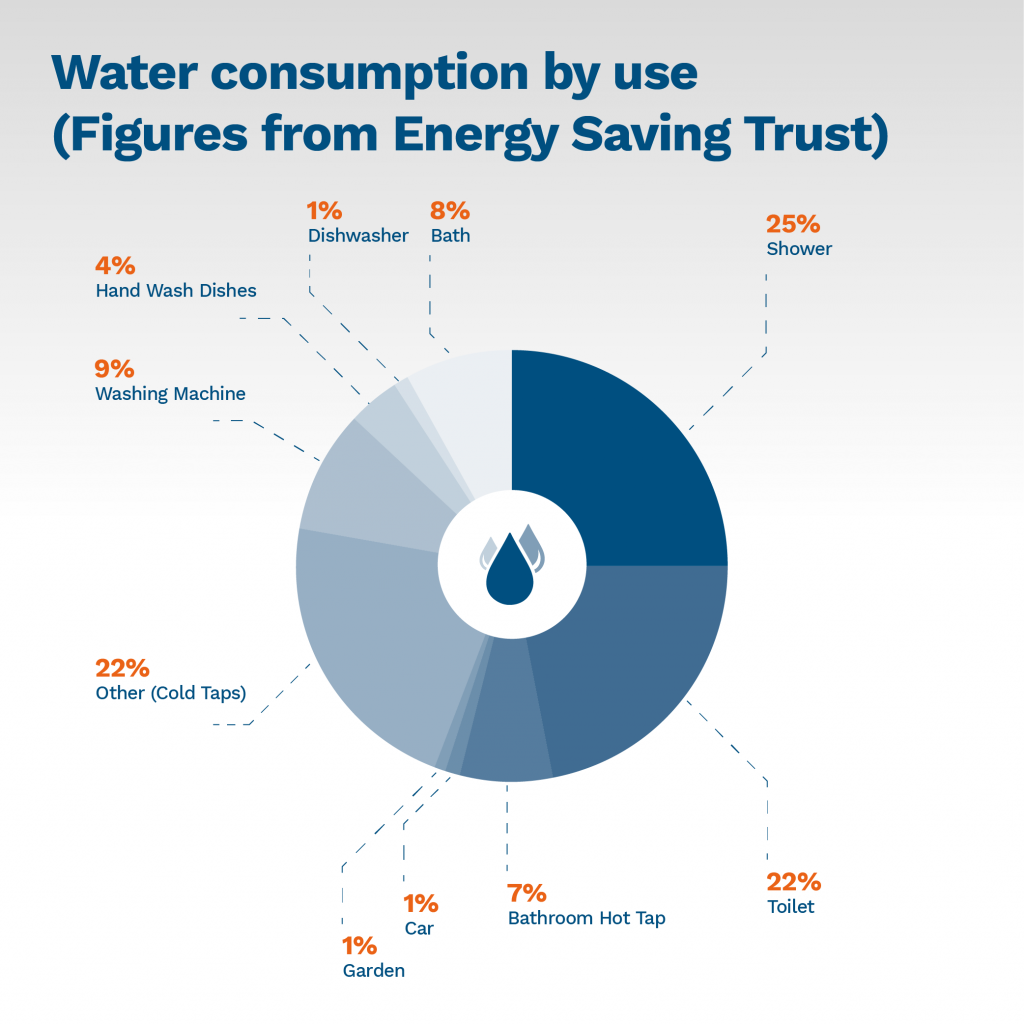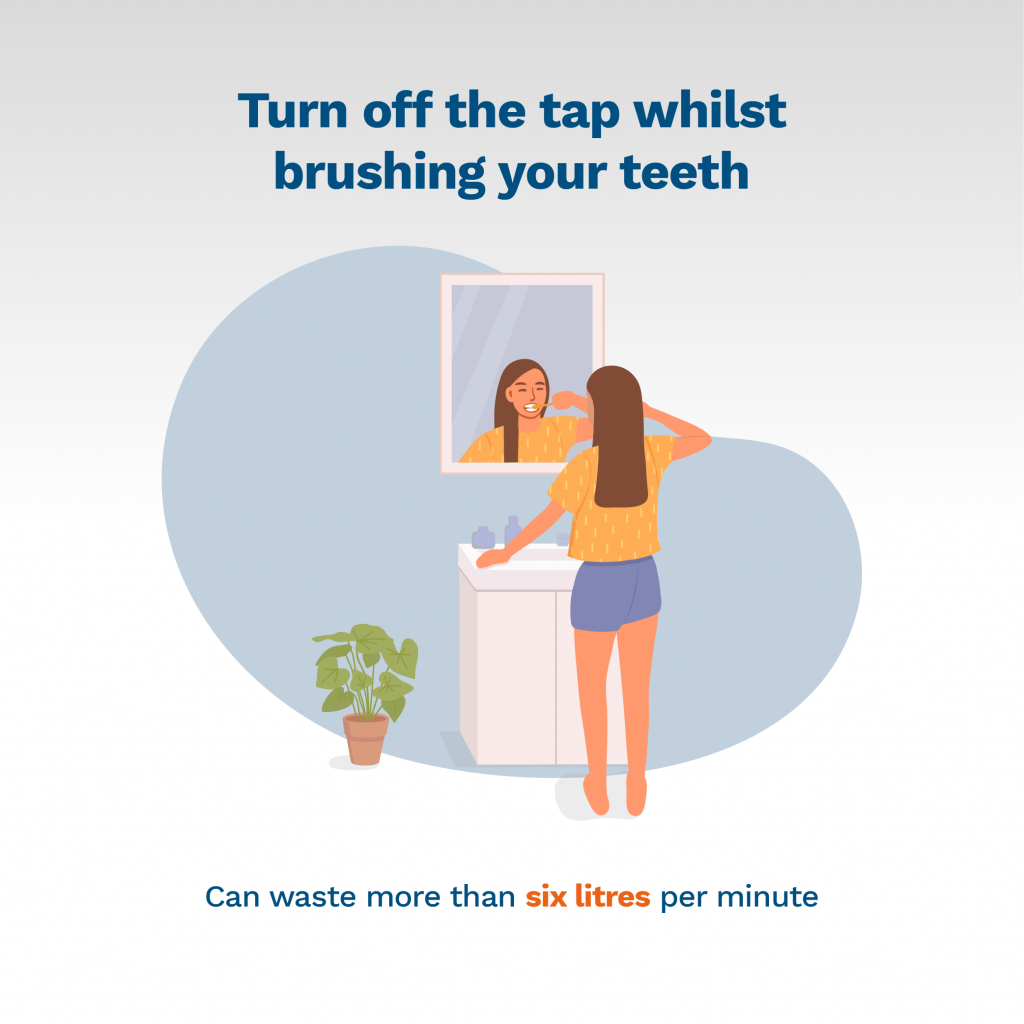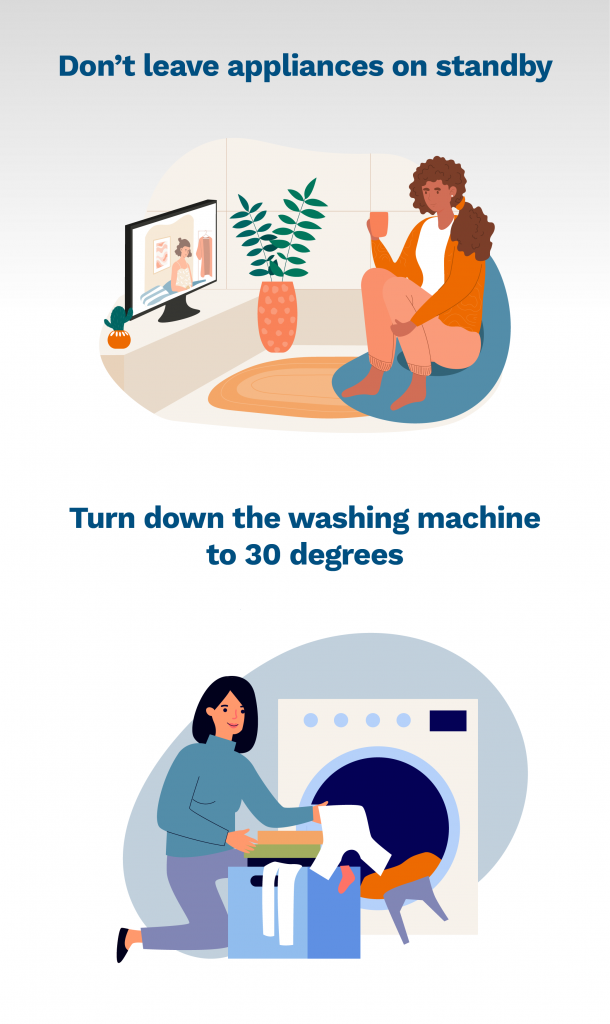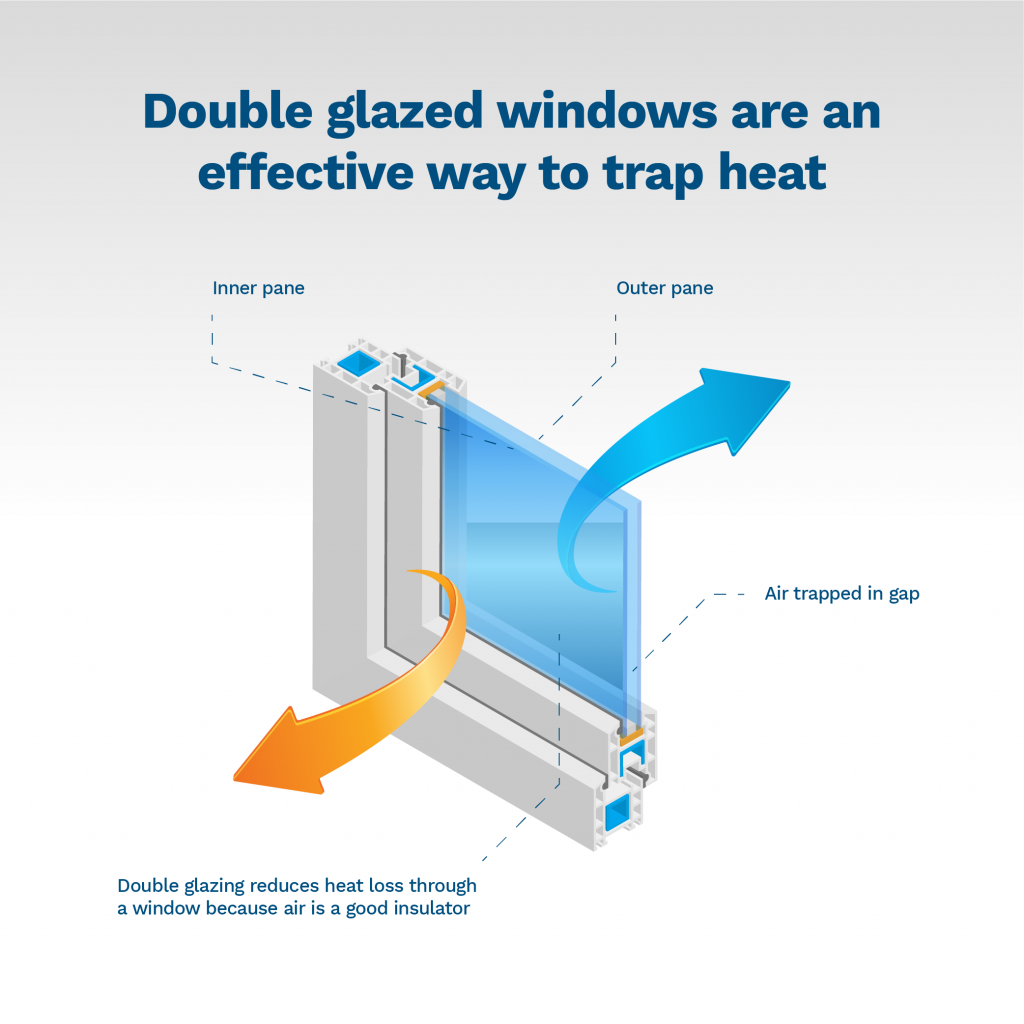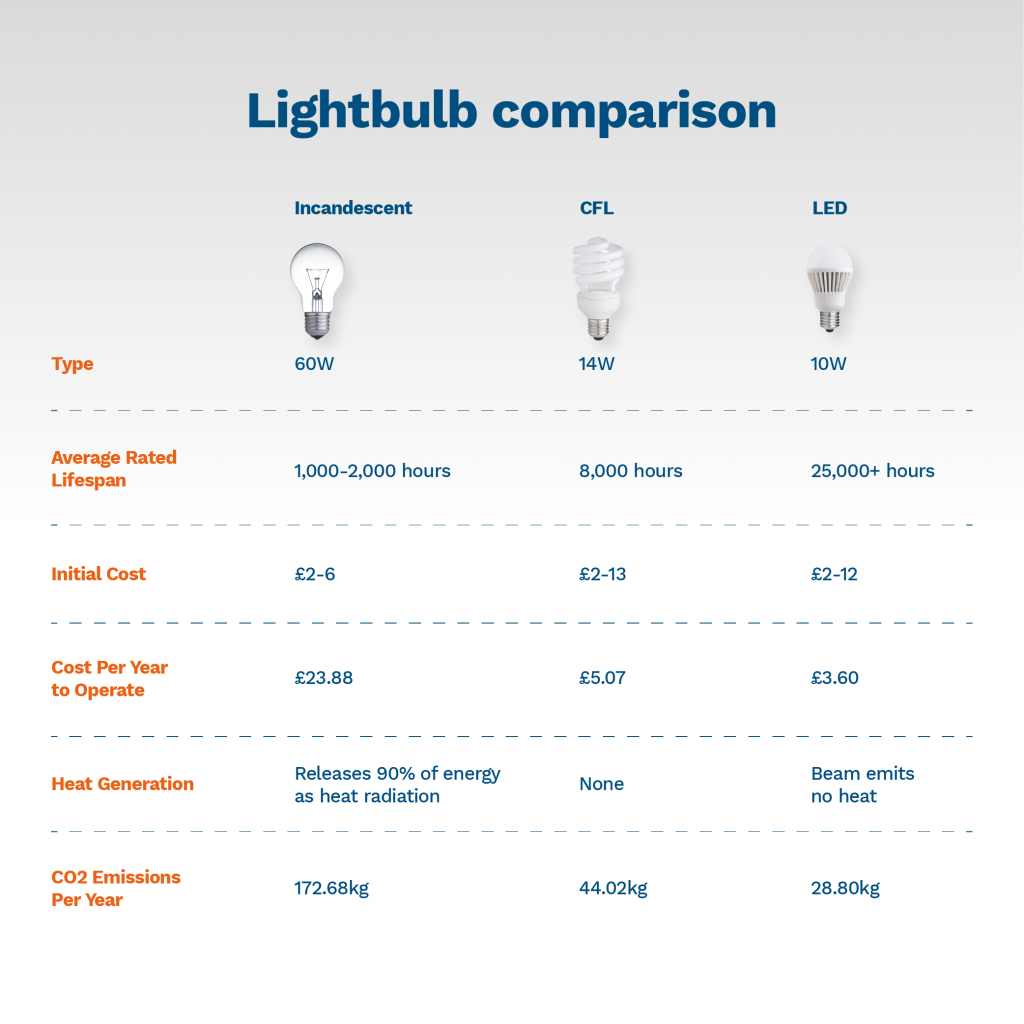How to Save on Water & Energy (Expert Advice)
Whether you’re a homeowner, renter, student, or live with your parents, there are many things you can do to reduce how much energy or water you use. If you’re unsure where to start, follow this guide for tips and advice on ways to lower your bills and reduce your carbon footprint.
This guide covers:
- How to reduce your water bill
- How to reduce your energy bill
How to reduce your water bill
How are your water bills calculated?
There are many ways to reduce your water bill here in the UK, but first, it’s important to know how your water bill is calculated. Over half of UK households use water meters, which means you only pay what you use, as opposed to paying a set amount for your water.
If you have a water meter:
You are charged for the actual units of water you use.
If you don’t have a water meter:
You are charged a set amount for water (‘rates’), based on your home’s rateable value.
Switching to a water meter can have some advantages:
- You only pay what you use
- If you cut the amount of water you use, you can cut your bills
- Meters are fitted free of charge by water companies
- If you end up paying more, you can switch back to rates within 12 months
Reduce the amount of water you use
On average, each person uses around 150 litres of water every day, here are some tips to help reduce the amount of water you use:
Turn off the tap. Whilst brushing your teeth or shaving, turn the tap off - it can waste more than six litres of water per minute.
Have a shower. Showers are faster, cheaper and much more efficient than baths.
Have a quicker shower! Limit the length of the aforementioned shower, if you can try to keep long showers to a minimum you will end up saving energy and reduce your bills.
Wash vegetables in a bowl. Use a bowl of water, rather than a running tap.
Use a watering can. Hoses can use up to 10 litres of water per minute.
Fix dripping taps. Little leaks and drips can waste a lot of water over time, up to half a bath a week.
Change your showerhead. A more efficient shower head can help save water by lowering the water flow.
Fill the washing machine. Rather than doing half loads of washing, fill the machine. Also, try to use economy or shorter cycles.
Only boil what you need. Make sure to fill the kettle with exactly the right amount of water, this can end up being a waste of water and energy.
Update shower pump. Update your shower pump to be more energy-efficient, the more expensive the pump the more money you will save overtime.
How to reduce your energy bill
If you’re worried that your energy bills are too expensive, don’t fret, there are so many ways to cut energy costs throughout your home. This section of the guide will go around your home with easy tips to help you and your family reduce your energy use.
Saving energy in the kitchen
There is a huge amount of potential energy to be saved in the kitchen, that can help cut the costs of your energy bill, here are some tips:
Don’t leave appliances on standby. Switch off anything that you aren’t using.
Be water-conscious. Make sure you use the exact amount of water you need when boiling food, this can waste a lot of energy otherwise.
Keep saucepan lids on. This is to reduce cooking times.
Clean behind the fridge/freezer. If you can get behind your fridge/freezer try and clean it once a year to make sure it is operating efficiently.
Leave enough defrosting time. Defrost frozen food in the fridge always as it helps keep the fridge cool. Defrosting in advance reduces the cooking time, saving energy in the process.
Turn down the washing machine. You don’t need to wash your clothes at a high temperature, 30 degree washes can potentially reduce electricity use by 50%.
Use economy mode. A lot of household electrics, for example, the dishwasher can always be used on an economic, energy-saving mode.
Use the right size pan and hob. Use a pan that is the right size for what you are cooking as the more surface area a pan has the more energy is required to heat it. Then make sure you use the right-sized hob, too big of a hob and you waste energy, too small and it takes too long to heat.
Use the microwave to reheat. Use the microwave to reheat food rather than the oven, microwaves are much more efficient as they heat the food up quicker.
Install a central heating pump. Installing a central heating pump will speed up the water flow in your pipes and help your home be more energy-efficient, consequently saving you money over time.
Saving energy on heating
During the colder months, there are many ways to save yourself energy, whether it’s methods of insulation or turning down the thermostat. Here are some ways to keep that bill as low as possible.
Don’t heat the rooms you aren’t in. Turn off individual radiators in rooms you aren’t in.
Keep the doors shut. This is an inexpensive and easy way to stop the heat from escaping the rooms you are wanting to keep warm.
Double glazing. If you have single glazing a lot of heat is going to be lost from your home, double glazing is an effective way to trap heat.
Turn the heating down! Even reducing the thermostat by just 1 degrees celsius can save you up to £80 a year.
Blankets and hoodies. If you really want to reduce the amount of time you have the heating on, try instead wearing thick comfortable clothes and using blankets to keep warm.
Bleed your radiators. Bleeding your radiators removes any trapped air and helps the radiator be as efficient as possible.
Insulate the loft. Insulating the top of your house can stop a quarter of your home’s heat from escaping, this can be costly but can save you money in years to come.
Saving energy on electricity
Switch off the lights. Every time you leave a room, switch off the lights, even if you are coming back.
Change your light bulbs. LED light bulbs are the best energy-saving light bulbs for any interior lighting, they can last up to 10 times longer than normal bulbs.
Put lights on timers. If you have exterior lights, make sure they work on a timer, and are only activated by motion so they come on only when needed.
Install dimmer switches. Rather than having constant bright lights, install dimmer switches to tailor the amount of electricity you’re using.
Turn off at the wall. Avoid leaving electric devices on standby, turning off at the plug ensures that no electricity is used. This includes TVs, computers and games consoles etc.
Hang your clothes out to dry. If you use a dryer regularly, instead, if weather permitting, try hanging your clothes out to dry. This is an obvious way to save yourself some money on your next bill.
There are so many ways to save energy and water at home, it seems that many people don’t understand how much energy they use at home and how much it can impact their budget, as well as the environment. Sometimes just making a simple investment can make that little difference, whether it’s switching light bulbs or turning off the TV (at the wall!) There’s always something you can do to reduce your bills every year.


